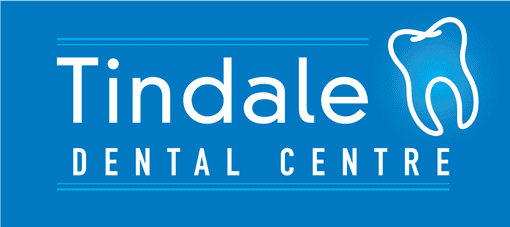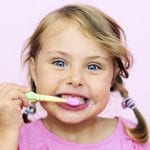Before their first tooth
Cleaning your child’s mouth before they even have teeth is quite important, and helps to get both you and your child used to the routine of maintaining proper oral health. To clean your baby’s mouth, dampen a soft washcloth with warm water and gently rub the cloth over all of their gums. This helps to remove any bacteria that may stick to the gums or surrounding tissue and cause an issue for baby teeth when they eventually do come in. This cleaning should be done before bedtime every night, and after every meal.
First tooth
When your child’s first tooth makes its introductory appearance, you can start using a very soft toothbrush instead of the washcloth. This helps to get rid of bacteria that may be harder to remove and also allows your child to become used to the sensation. Choose a toothbrush that has very soft bristles, a large handle for easy maneuverability, and a small head that will comfortably move around your baby’s mouth.
When you see the first tooth above the gum line, you may use toothpaste with the moistened toothbrush, but only the amount of a grain of rice. We recommend using children’s toothpaste as the taste is less harsh and may be more pleasant. With this, clean all around your child’s tooth or teeth, making sure to cover every side.
One year old
At the age of one, we recommend making an appointment to visit our friendly family dental centre, even if there isn’t any apparent issue. Your dentist will ensure that their mouth is being properly cleaned and that there are no concerns, structural or otherwise, with their oral health. Your dentist will also be able to give you advice tailored to your child’s specific needs as well creating a positive first experience at the dentist..
Three years old
At three years old, children can graduate to using a pea-sized amount of fluoridated toothpaste on their toothbrush. They will still need you to assist with brushing but will be more familiar with the process and will be preparing to take over themselves.
When they can handwrite
Generally, when your child is old enough to handwrite they are ready to do a good job of brushing their teeth on their own. At this point, they do not necessarily require supervision and can grasp the concepts needed for decent oral health. We do recommend that you keep an eye on their brushing routine from time to time, however, as children can easily forget to brush, or may rush through the task when distracted.
Things to watch out for
There are a few things to be on the lookout for when caring for your child’s teeth. These include dark or brown spots on the teeth, which can be cavities, yellow on the teeth and along the gum line, which implies the teeth are not being cleaned properly, and redness or irritation of the gums or other tissues, which can imply that the affected areas are being cleaned too vigorously or are experiencing an allergic reaction.
To avoid these issues, ensure that your child’s teeth are cleaned properly every day, and make sure to schedule regular dental visits, keeping it in mind to schedule extra appointments if something seems wrong.
Most importantly, remember that your children’s dental habits will reflect your own. Excellent dental care starts with you, so making good dental hygiene part of your daily routine will be one of the best ways to ensure your children do the same.
Please call us on (02) 4722 6115 to make an appointment so we can discuss your dental needs.

